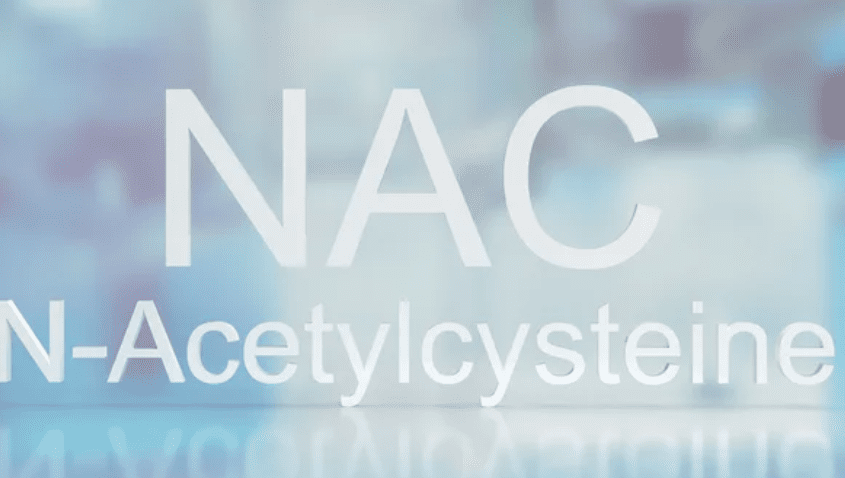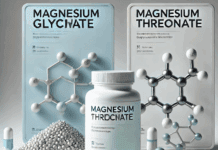What is NAC? N-acetyl-l-cysteine, It’s like the unsung hero of the supplement world – a powerhouse antioxidant with many health benefits. I first stumbled upon NAC while searching for natural ways to boost my overall health, and oh boy, was I in for a treat.
N-acetyl-l-cysteine (NAC) is a powerful antioxidant used for centuries to treat various health conditions. Available in forms such as supplements and medications, NAC is a versatile compound that can significantly improve your health.
What is it, And What benefits
N-acetyl-l-cysteine (NAC) is a derivative of the amino acid L-cysteine. It plays a crucial role in the body’s detoxification process and helps maintain cellular health. As a powerful antioxidant, NAC helps protect the body against oxidative stress and free radical damage. It has been used for centuries to treat various health conditions, including respiratory and liver diseases.
Health Benefits of N-Acetyl-L-Cysteine (NAC)
N-acetyl-l-cysteine (NAC) boasts numerous health benefits, including its antioxidant properties, liver detoxification, and respiratory health. Scientific studies have shown that NAC can improve lung function in people with chronic obstructive pulmonary disease (COPD) and reduce the frequency of exacerbations1.
Additionally, NAC protects the liver from damage caused by toxins and drugs2. It has also been proven to improve insulin sensitivity and reduce inflammation in people with metabolic syndrome3.
How to Take N-Acetyl-L-Cysteine (NAC)
The recommended N-Acetyl-L-Cysteine (NAC) dosage varies depending on the treated health condition. The recommended dosage for respiratory conditions is 600-1200 mg daily. The recommended dosage for liver detoxification is 1200-2400 mg daily. Taking N-Acetyl-L-Cysteine (NAC) with food is essential to avoid stomach upset. Always consult with a healthcare professional before starting any supplementation.
The Science Behind N-Acetyl-L-Cysteine NAC
N-acetyl L-Cysteine (NAC) is a potent compound flying relatively under the radar in the wellness world. NAC is the supplement form of cysteine, a semi-essential amino acid found in high-protein foods such as eggs, chicken, and turkey. NAC acts as a precursor to glutathione, a powerful antioxidant that prevents damage from free radicals on a cellular level.
Free radicals are unstable atoms that cause significant damage to cells by breaking them down, laying the foundation for severe illnesses like diabetes, cancer, and Alzheimer’s. Antioxidants (like glutathione) neutralize those free radicals.
In other words, NAC can help combat cell damage throughout the body. According to this study, glutathione may even impact longevity by fighting the adverse effects of oxidative stress that lead to many chronic diseases.
Adding NAC to your routine is even more critical as we age. “Although the body can produce glutathione naturally, we produce less of it as we get older,” says Frank Lipman, MD, our Chief Medical Officer. “Thus, the need to take some NAC to top off your tank.”
NAC is often used to help fight long-term lung damage in chronic obstructive pulmonary disease (COPD) patients. According to Lipman, “NAC replenishes glutathione levels in the lungs, decreases inflammation in the lungs and bronchi, and loosens mucus in the airways.”
Some researchers even predict that NAC could potentially decrease the infectivity and prevent the severity of COVID-19. Several clinical trials are underway to test its effectiveness on coronavirus patients.
NAC as a Supplement
NAC benefits: NAC is a supplement that can help with various health conditions, such as respiratory infections, liver diseases, psychiatric disorders, and substance abuse. NAC increases glutathione levels, a powerful antioxidant that protects the cells from oxidative stress and inflammation. NAC also has anti-inflammatory, mucolytic, and neuroprotective effects.
NAC evidence
NAC has some scientific evidence to support its effectiveness for specific health conditions, especially those involving oxidative stress and inflammation. The paragraph cites a meta-analysis of 33 randomized controlled trials (RCTs) that found that NAC improved depressive symptoms, manic episodes, positive and negative symptoms of schizophrenia, OCD severity, and craving and withdrawal symptoms of substance abuse.
NAC side effects and interactions
N-acetyl-l-cysteine (NAC) is generally safe when taken in recommended dosages. However, high doses can cause side effects such as nausea, vomiting, and diarrhea4. People with asthma should avoid taking N-Acetyl-L-Cysteine (NAC) as it may worsen their symptoms 5.
NAC is generally safe and well-tolerated, but it may cause side effects such as nausea, vomiting, diarrhea, rash, or headache. NAC may also interact with some medications, such as nitroglycerin, activated charcoal, or anticoagulants. Therefore, it is advisable to consult with your doctor before taking NAC.
Food Sources of NAC
You are what you eat, and incorporating NAC-rich foods into your diet is like fueling your body with the best possible nutrients. Foods like garlic, onions, and broccoli are rich in NAC and have been a staple since I discovered their health benefits.
Here is the N-Acetyl-L-Cysteine I am using.
- Immune support – N-acetyl-L-cysteine, or NAC for short, is a novel nutrient that helps support the body’s healthy immune response, as well as bronchial and respiratory health.
- Liver health – In addition to respiratory health, NAC supports liver health and function. This supplement provides 600 mg of NAC in every capsule.
- Antioxidant protection – N-acetyl-L-cysteine helps replenish glutathione, a powerful antioxidant. NAC is also an antioxidant, protecting cells from oxidative stress.
- Ingredients matter – We use only the finest raw ingredients with the quality and purity you deserve. The majority of our products are non-GMO, gluten-free and manufactured in the USA—and a Certificate of Analysis is available for every one.
- Live your healthiest life – We believe the answers to a healthier life are within reach, and that scientific research is the key to getting us there. That’s why so many of our formulas feature specific ingredients and amounts based on scientific studies.
If You live in the European Union, the EU
Then Click on this link to order from Life Extension Europe. Be sure to use our discount code at the checkout.
https://www.lifeextensioneurope.com/n-acetyl-l-cysteine-600-mg-60-vegetarian-capsules
Discount Code:70037088
My Final Thoughts on NAC
The journey with NAC has been a roller coaster of ups and downs, but the pros undoubtedly outweigh the cons. I wholeheartedly recommend NAC to anyone looking to boost their health and wellness. The transformative effects it has had on my life are miraculous; some of them are no more nasal obstructions, better overall fitness level, improved hearing in my left ear, and blood sugar values improved. And I hope you, too, can experience the magic of NAC.
References used in this article:
- Reference for COPD and lung function improvement.https://journals.sagepub.com/doi/10.1177/17534666231158563#:~:text=NAC%20may%20be%20able%20to,reduce%20the%20risk%20of%20exacerbations.
- Reference for liver detoxification.https://www.ncbi.nlm.nih.gov/pmc/articles/PMC3270338/
- Reference for metabolic syndrome
https://pubmed.ncbi.nlm.nih.gov/32552298/
- Long-Time Treatment by Low-Dose N-Acetyl-L-Cysteine Enhances Proinflammatory Cytokine Expressions in LPS-Stimulated Macrophages
From: PLoS ONE (Vol. 9, Issue 2) Peer-Reviewed
- N-acetyl-L-cysteine improves the outcome of advanced cerebral adrenoleukodystrophy.
From: Bone Marrow Transplantation (Vol. 39, Issue 4) Peer-Reviewed
- Combined metabolic activators improve cognitive functions in Alzheimer’s patients: a randomized, double-blinded, placebo-controlled phase-II trial.
From: Translational Neurodegeneration (Vol. 12, Issue 1) Peer-Reviewed










